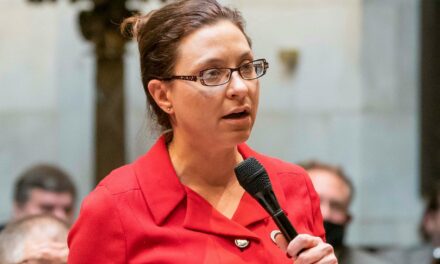
Turn out the disability vote November 6th
The Wisconsin Disability Vote Coalition is working to ensure a strong turnout of voters with disabilities at the polls, and to address barriers that voters with disabilities may encounter when exercising this important civil right. People with disabilities accounted for over 35 million eligible voters in 2016, according to Rutgers University. That figure jumps to over 62 million eligible voters when you count family members in the same household – over 25% of eligible voters.
Although the impact of the disability vote is significant, voter participation among people with disabilities decreased over the past two presidential elections — from 57.3 percent in 2008 to 56.8 percent in 2012 and 55.9 percent in 2016. An October 2017 study by the US Government Accountability Office found that nearly two-thirds of the polling places inspected on Election Day 2016 had at least one impediment to people with disabilities. Other contributing factors include a lack of training for poll workers, limited access to registration materials, requirements for photo ID, and insufficient resources for election officials.
To ensure that Wisconsinites with disabilities can fully participate in the electoral process, the law provides these protections:
• Curbside voting is available if a voter cannot enter the polling place due to a disability on Election Day. Two poll workers will bring a ballot to the individual needing assistance, and conduct voting at their vehicle, or at the polling place entrance. Proof of residence must be provided if a voter is not registered. Proof of identification must be provided.
• An accessible voting machine should be available in every polling place. This machine will allow voters to independently mark the ballot. These machines will be set up to allow voters who use a wheelchair to reach the controls, and have an audio ballot-marking option for voters with visual impairment.
• If a voter inside the polling location cannot sign the poll list due to a physical disability, they should inform a poll worker. The poll worker will write “Exempt by order of inspectors” in the signature space on the poll list. 2
• If a voter needs help marking the ballot, he or she may have a person assist them. That person does not need to be qualified to vote. The voter may not receive assistance from an employer or a representative of that voter’s labor organization.
• Other reasonable accommodations can be requested. Speak to the chief inspector at the polling place or the municipal clerk. Contact information for municipal clerks is online at https://elections.wi.gov/clerks/directory
• Homeless voters are eligible to vote in Wisconsin. When registering, they may use a letter from a social service agency as proof of residence. They will need to show a photo ID. https://elections.wi.gov/node/3622
For more information on disability related voting, visit www.disabilityvote.org and the Wisconsin Disability Vote Coalition Facebook www.facebook.com/wisconsindisabilityvote/.
• Our November Election Frequently Asked Questions and other resources are available at www.disabilityvote.org/
• For disability related questions about voting, or help addressing a concern or filing a complaint, contact the Disability Rights Wisconsin Voter Hotline at 1-844-DIS-VOTE / 844-347-8683.
• The Wisconsin Election Commission toll free help line is available to answer all voting related questions at 1-866-VOTE-WIS.
The Wisconsin Disability Vote Coalition is a project of Disability Rights Wisconsin and the Wisconsin Board for People with Developmental Disabilities.





